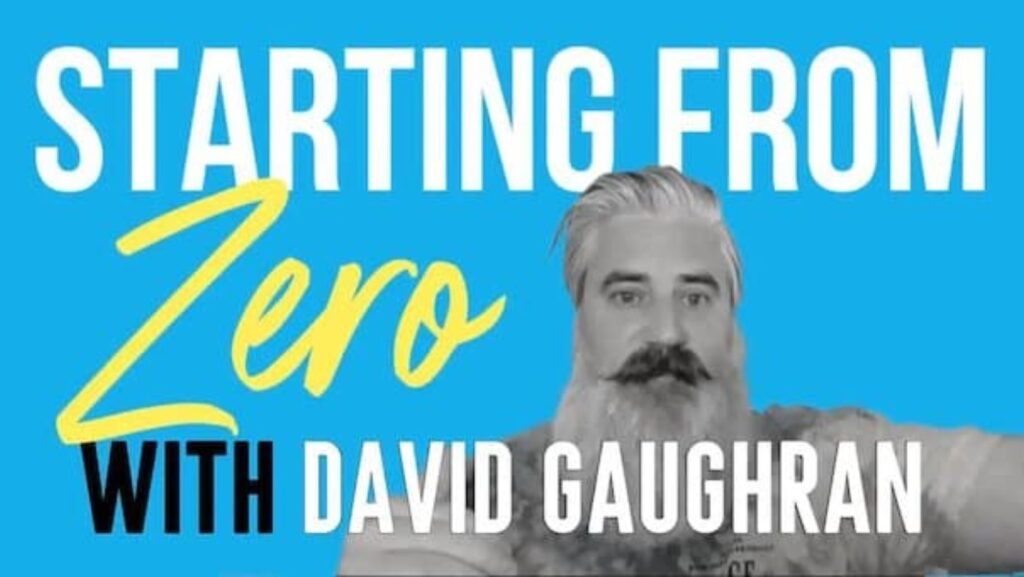Imagine the incredible prospect of attracting a vast number of potential readers who actively search for keywords related to your book, effortlessly navigating through your book marketing process, and ultimately leading to a successful sale.
This scenario may seem like a far-fetched dream, but it’s actually an attainable reality through the effective utilisation of SEO for Author as a marketing channel.
Unfortunately, many authors tend to overlook the immense possibilities offered by search engine marketing, resulting in missed opportunities.
For authors who are committed to long-term success and are eager to make the most out of SEO, Booklinker has developed the ultimate guide to help authors excel in this area.
To provide readers with valuable insights, we had the privilege of speaking with Harry Bingham, an esteemed figure in the writing industry as both a renowned author of the Fiona Griffiths Crime Series and a member of JerichoWriters.
Without further delay, let’s delve into our comprehensive guide to SEO for Author.
Table of Contents
What is the Meaning of SEO?

SEO, which stands for search engine optimisation, refers to the practise of analysing and understanding how search engines function with the goal of driving more traffic to your website content.
While we often mention “search engines” in general, the most prominent and influential one is undeniably Google, holding a market share of over 93% as of March 2023.
Given this dominance, we will primarily refer to the Google algorithm in this article, although many of the strategies discussed can be applied to other search engines like Bing, DuckDuckGo, and others.
When Should Consider SEO for Author?
Authors should start considering SEO as a crucial aspect of their book marketing strategy as soon as they make a long-term commitment to their authorship journey.
SEO possesses significant potential and is likely to yield the highest return on investment among various marketing strategies.
At JerichoWriters, we leverage SEO to attract talented writers from around the globe to our website and subsequently collect their email addresses. The combined power of SEO for Authors and our mailing list contribute significantly to our marketing success, accounting for more than 50% of all sales.
As an author, your sales primarily come from platforms like Amazon, Apple, Kobo, and others. However, through your website, you can build an audience and gather email addresses, making it crucial to drive traffic to your site.
By increasing your website traffic, you strengthen your marketing tools. However, it’s important to note that building traffic takes time and is not an instant process.
For instance, if you plan to publish a book on the American Civil War in a year or two, it’s advisable to start creating relevant blog-type content now. This allows Google to understand your content and establish your online presence.
By the time your book hits the shelves, if you have implemented effective SEO strategies, you can gain readership and achieve a prominent position in Google search results.
Which Authors Can Benefit from SEO?
Here’s the bottom line: SEO doesn’t provide substantial benefits for novelists.
The reason is quite simple. Even if you’re the best thriller writer in the world, it would be challenging to rank highly for broad keywords like “great thrillers.”
In reality, readers typically don’t turn to Google to search for their next novel. Instead, they rely on Amazon’s search function to discover their next reading choice. However, there is an important caveat to consider, which we’ll address later. On the other hand, when it comes to nonfiction, the situation is different.
If you have an exceptional blog focused on the history of the American Civil War, readers will visit your blog for its content. By promoting it effectively, you can make them aware of your book on the same subject.
How Can Authors Leverage SEO?
SEO for Author as a passive and enduring book marketing strategy. By creating content that ranks well for targeted keywords, authors can increase their visibility and reach their ideal audience.
In the case of non-fiction, it’s common for authors to have additional products or services to offer beyond their books. These may include online courses, workshops, seminars, or speaking engagements. Essentially, the book serves as an entry point to more comprehensive and higher-priced offerings. Consequently, nonfiction works harmoniously with SEO.
Getting Started With SEO

Once you’ve determined that SEO for Author aligns with your book marketing strategy, the initial step is to establish your author website if you haven’t already done so. Without a dedicated website, you’ll have no platform to publish your content.
While services like Substack or Medium are options, they are not recommended as they don’t provide the level of control and ownership that comes with hosting your own domain and platform. WordPress is an excellent choice for the majority of authors.
Choosing a Domain Name
When selecting a domain name for your website and blog, it is recommended to use your author name alone, preferably with a.com extension. Optimal practise would be to have a domain like harrybingham.com instead of harrybingham.wordpress.org.
Similarly, if your name happens to be George Bush and there are more prominent figures with the same name, it would be wise to opt for a domain name like georgebushauthor.com. Avoid using the title of your book as the domain name, as you are likely to write multiple books and readers may not be aware of the specific title of your first book.
To summarise, go with either (first name)(last name).com or (first name)(last name)author.com. Choose a variant of this format as the title for your website. You can purchase your domain name from reputable registrars such as Namecheap and GoDaddy.
Setting up a Blog
Once your author website is live, it’s time to create a dedicated blog section. A blog serves as a platform where you can systematically publish written content and easily share it.
WordPress offers a wide range of themes, plugins, and integrations that make it convenient for authors to get started with blogging.
Considerations for SEO for Author involve two important parties: the reader and Google’s algorithms. Both are equally significant. As you expand your content library, Google will increasingly crawl your website. This process allows Google to gain a better understanding not only of the content of each page but also of the relationships between them.
Keyword Research
To rank for your target keywords, you must first create content that aligns with what Google considers valuable for its users’ search journeys. Google aims to rank content that best satisfies users’ search queries.
From Google’s perspective, the worst outcome is when a searcher enters a query, clicks on a search result, doesn’t find what they’re looking for, repeats the process, and eventually leaves the page. To avoid this, Google closely monitors user experience and behaviour upon landing on a webpage to determine what content to rank.
While there are advanced tools available for analysing Google’s preferred ranking for specific queries, the easiest and most free method is to personally Google the keyword yourself and observe the existing search results.
When it comes to the example of the American Civil War, it’s evident that a blog post about funny cat videos will not appear in search results for that keyword. However, a comprehensive, long-form content piece discussing the history of the war has a better chance of ranking.
The authority level of the websites ranking in the top positions, such as Wikipedia and Encyclopaedia Britannica, makes it nearly impossible for an author to rank for such a keyword. This introduces the concept of domain authority, which will be covered later.
For newer authors with less authoritative websites, it’s necessary to target relatively long-tail keywords. Long-tail keywords are specific search phrases that are longer in length, have fewer monthly searches, but are easier to rank for.
For instance, “American Civil War” is a short-tail keyword with high search volume. In contrast, a long-tail keyword could be something like “Who won the Battle of Gettysburg?” or even more specific, “Battle of Gettysburg strategies.”
Newer sites should focus on relatively niche topics until they establish authority and can target higher-volume topics. Building authority will be discussed in a later section.
Now that the importance of keyword research is clear, let’s explore how to conduct it.
Getting Started with Keyword Research
The first step is to research and understand your target readers. If you’re writing a book on a particular topic, you likely already have some insights into your potential audience.
The second step is to map out the main topic and identify all the subtopics related to it. Consider the keywords that your readers would be interested in and that align with your content.
Remember, the goal is to convert passive traffic into email captures and book sales.
There are various keyword research tools available, including
and Google’s keyword research tool under their ad planner.
For most authors, especially those with lower traffic and limited monetization, it’s not necessary to invest in paid tools. These tools derive their keyword data from Google itself.
For newer authors and websites, it’s advisable to target keywords with monthly search volumes below 1000. Although these volumes may seem low, there are multiple variations and combinations of keywords that can contribute to higher overall search volumes.
For example, if you examine the first page of Google results for your target keywords and find one or two niche bloggers like yourself in the search results, it indicates that you have the potential to rank.
Ultimately, when conducting keyword research, it’s important to use your own judgement and common sense. While tools can be helpful, they are useless without your own analysis.
SEO for Author Tactics
Next, let’s discuss some essential SEO terms and tactics, which can be divided into three main sections: On-Page SEO, Off-Page SEO, and Technical SEO.
On-Page SEO
On-Page SEO refers to optimising your content for search engine discovery.
Components of On-Page SEO include:
- Page Title and Header Tags: Use header tags (H1, H2, and H3) to organise your content hierarchically and include target keywords and related terms.
- URL Structure: Optimise your page’s URL by incorporating the target keyword in a readable manner, keeping it concise and relevant.
- Links (Internal and External): Incorporate both internal and external links in your content. External links to high-quality resources demonstrate credibility, while internal links improve site navigation and the user experience.
- Images: Include relevant images to enhance visual appeal. Add alternate text to images, including keywords, for better accessibility and understanding.
- Keyword Density: Instead of forcefully inserting keywords, focus on writing naturally and authentically. Mention primary and secondary keywords in a sensible manner.
Page Titles and Header Tags
One important element of on-page SEO is the header tag. Header tags are HTML tags that organise the hierarchy of your page and are indexable by search engines.
In most cases, the page title is designated as a Header 1 (H1), followed by Header 2s (H2s) for main topics. If further breakdown is required, you can use H3s and H4s, but going beyond that is usually unnecessary.
When using header tags, it’s essential to include your target keywords and related keywords, preferably on the left-hand side.
Here are some examples of H2s and H3s:
- Tactics at the Battle of Gettysburg
- Strategy at the Battle of Gettysburg
- Timeline of the Battle of Gettysburg
Header tags are highly significant for SEO, as they serve as important signals to Google. Therefore, it’s crucial to invest sufficient time in outlining your article’s headers before writing the post.
URLs
Another crucial on-page signal for Google is the URL structure of your page. The URL is the web address where the page is hosted and appears after the domain name.
For example, in our civil war example, the URL might look like this:
- (website domain).com/american-civil-war/
The best practise for URL structure is to include your target keyword in a way that is easily readable for both humans and search engine robots.
You can further delve into subtopics by creating additional URLs. For example:
- (website domain).com/american-civil-war/battle-of-gettysburg/
When crafting URLs, it’s advisable to avoid unnecessary characters, dates, or filler words. Keep them concise and focused.
From Google’s perspective, if the URL aligns with the header tags, it provides an extra level of confidence that your page is relevant to the given topic.
Keyword Density
Keyword density refers to the concept of mentioning your target keyword a certain percentage or number of times in an article to convince Google of its relevance.
While this approach may have been effective in the past, it’s now considered outdated. Google assumes that your content is natural, authentic, and expertly written. Therefore, it prefers content that reads naturally and confirms its relevance to the topic. Keyword stuffing can actually harm your rankings rather than help them.
Instead, ensure that you naturally incorporate your primary keywords and sensible secondary keywords into your content without overdoing it.
Images
Images play a crucial role in breaking up the text and enhancing the visual appeal of an article.
Images also have alternate text where you can include keywords. Although not a major ranking factor, it’s worth including for better accessibility and readability, especially for visually impaired individuals.
When including images in your blog posts, ensure they are copyright-free or properly credited to the original photographer. While stock images can work, using custom graphics and original images tends to create the best content.
Internal and External Links
Links are highly influential in SEO. Google’s success is based on the understanding that when one website links to another, it serves as a vote of confidence, indicating that the linked resource is valuable.
Google rewards sites that participate in this system by externally linking to other useful resources within their articles.
However, internal links should not be overlooked since your own website holds its own authority. Internal links help connect your website’s pages together, preventing a poor user experience where readers have to navigate backward through older posts to access previous content.
Ensure that your blog is well interlinked with descriptive anchor text, so readers are only a few clicks away from every other article on your site.
Table of Contents
Including a table of contents in your article is highly beneficial for both Google and the readers.
For Google, it helps to clearly outline the hierarchical structure of your blog post, enabling their robots to understand it better.
For readers, a table of contents provides an overview of the article’s layout and allows them to jump directly to specific sections of interest.
An added advantage of including a table of contents is that Google may reward you with more real estate on the search engine results page if they detect its presence.

SSL Certification
SSL (Secure Sockets Layer) certification ensures that the data transmitted between a user’s browser and a website’s server remains encrypted and secure. It establishes a secure connection and protects sensitive information such as login credentials, payment details, and personal data from being intercepted or tampered with by malicious parties.
Off-Page
Now let’s delve into off-page SEO, which encompasses SEO signals that are not directly related to the content of a particular page.
Social Mentions
are another off-page metric that refers to the sharing, promotion, and engagement of your content on social networks.
While there is some debate within the SEO community about whether social mentions are a significant Google ranking signal and to what extent, it’s worth discussing here. It is considered best practise to share your published articles on social media platforms, particularly those where you have a following, to generate more views and backlinks.
Social engagement serves as a strong indicator that your content is valuable.
It’s important to note that social media can provide a quick traffic boost, but it tends to decline rapidly and eventually drop to zero. On the other hand, SEO takes time to gain traction. As Google crawls your post more frequently and as the authority of your site grows, you’ll gradually receive more traffic to that post.
Social media is an effective way to attract immediate attention and potentially gain links to your content. It can also contribute to improving the organic rankings of your blog posts, assuming they receive significant engagement.
Domain Authority and Backlinks
While “domain authority” is not a term used by Google, it is frequently mentioned in SEO discussions. It refers to the perceived authority of a website in the eyes of Google.
We previously mentioned the importance of links and authority, which are derived from the number and quality of external links pointing to a website.
A mention from a highly authoritative source, such as the New York Times, carries more weight with Google compared to a mention from a site with minimal traffic and few links.
To accumulate these valuable links, you need to reach out to fellow bloggers, historians (in our example), and writers in your niche. Building relationships and persuading others that your content is worth linking to is crucial.
By consistently creating top-notch content, you can also passively and naturally attract backlinks.
SEO for Author Titles
Let’s move on to SEO titles and meta descriptions.
You have likely come across these elements countless times while conducting Google searches. The main objective here is to include your target keyword(s) and aim for a high click-through rate on the search engine results page.
It’s important to place your primary keyword(s) on the left side of the page title. For example, if your page is about the Battle of Gettysburg, a suitable page title could be:
“Battle of Gettysburg: Tactics, Strategies, Timeline, and More”
Notice how the actual keyword “Battle of Gettysburg” is positioned on the left. The other keywords serve as signals to entice your ideal readers, letting them know that this page covers everything they want to know.
Including long-tail keywords like “Tactics of the Battle of Gettysburg” can also be beneficial.
Technical SEO for Author
Sitemap Files
Technical SEO for Author is a complex topic that may not require excessive attention, but there are a few crucial aspects you should ensure are handled correctly to make your website easily crawlable.
Google recommends that webmasters submit a sitemap in the form of an.XML file, which helps Google understand the structure and layout of the website better.
There are several services and WordPress plugins, such as Yoast and RankMath, that can assist in generating a sitemap.
Once you have a sitemap, it’s important to submit it to Google through the Google Search Console.
Core Web Vitals
A recently introduced evaluation by Google that focuses on measuring the user experience and loading speed of websites. Webmasters can assess their website’s performance using Google’s test specifically designed for this purpose.
Within Google Search Console, webmasters can access Google’s scores for both Core Web Vitals tests to determine if their site meets the requirements. If you opt for WordPress as your platform, utilising plugins like WordPress Rocket can assist in optimising your website to pass the Web Vitals assessment.
Eliminating 404 errors
A crucial aspect of technical SEO These errors occur when a web server is located, but the requested page is not found at the specified web address. Having 404 errors can result in a poor user experience when visitors encounter non-existent pages. It’s essential for website owners to actively manage their HTTP status code errors to ensure a positive impact on their search rankings.
Examples of SEO for Author who have effectively implemented
David Gaughran

David Gaughran is an author with a blog that covers various aspects of book marketing. He successfully ranks for keywords such as “book promotions” and “book advertising.” This aligns perfectly with his target audience, as his books revolve around book marketing topics.
Ben Goldacre

Ben Goldacre’s blog played a significant role in his success, leading to multiple book deals. He primarily relied on his mailing list to market his books. Although search traffic statistics may seem misleading, his referral and direct traffic numbers are remarkable. Goldacre demonstrated his ability to identify and engage with his audience effectively.
Louise Penny

Louise Penny‘s case is intriguing. While she receives substantial traffic, most of it comes from people searching for her or her books. Although directing traffic to her website instead of Amazon might seem counterintuitive, there are compelling reasons for this approach. By bringing visitors directly to her website, Penny can provide a curated and personal experience, present herself and her books in her desired manner, collect email addresses, offer additional merchandise, and attract readers to various events or writing courses. This personalised website experience allows Penny to deepen the connection with her readers, creating devoted ambassadors for her work.
However, it’s important to shift our perspective on this matter.
Amazon is filled with authors who are competing with Louise Penny.
By directing traffic to her website instead of Amazon, Penny gains several advantages:
- She can offer a curated, creative, and personal view of her world.
- She can present and define herself and her books exactly as she desires.
- She can collect email addresses from visitors.
- She can offer additional merchandise.
- She can attract readers to mini-writing courses, physical or online events, and other offerings she may have.
The personal experience provided on her website holds significant value. While it may not convert “cold” users into immediate buyers, it deepens the connection with already engaged readers. This journey is profoundly important.
There’s a saying that having 1,000 truly dedicated ambassadors for your product leads to success. And there’s truth in that statement. While Amazon serves its purpose effectively, it lacks a heartwarming aspect.
By capturing the traffic herself, Penny doesn’t lose sales but instead gains loyal supporters.
In conclusion,
SEO plays a vital role in the book marketing strategy of nonfiction authors, and it is beneficial for all serious authors to invest in it.
There are a multitude of keywords for which relevant content can be created, attracting the ideal audience directly to their website.
To begin with, authors should have an active author website and a blog to publish long-form content.
Once the foundation is established, conducting keyword research using the mentioned free or paid tools can help generate article ideas.
After writing and publishing articles, attention should be given to on-page SEO for Author metrics, including proper header tags, internal and external linking, contextual and value-added images, and a table of contents.
On-page SEO is arguably the most crucial factor, but if traffic reaches a plateau, it may be worth investing significant time in off-page factors such as link building and optimising SEO titles and meta descriptions for click-through rates (CTR).
Lastly, ensuring the correct site architecture is in place by following the provided technical SEO for Author tips is essential. This involves optimising website speed, passing Google Core Web Vitals, submitting a sitemap, and minimising 404 errors.
By following this advice, authors can expect to attract passive traffic to their blogs in no time.
If there are any questions about SEO for Author, feel free to leave a comment below for me or the Booklinker team, and we will respond promptly.

